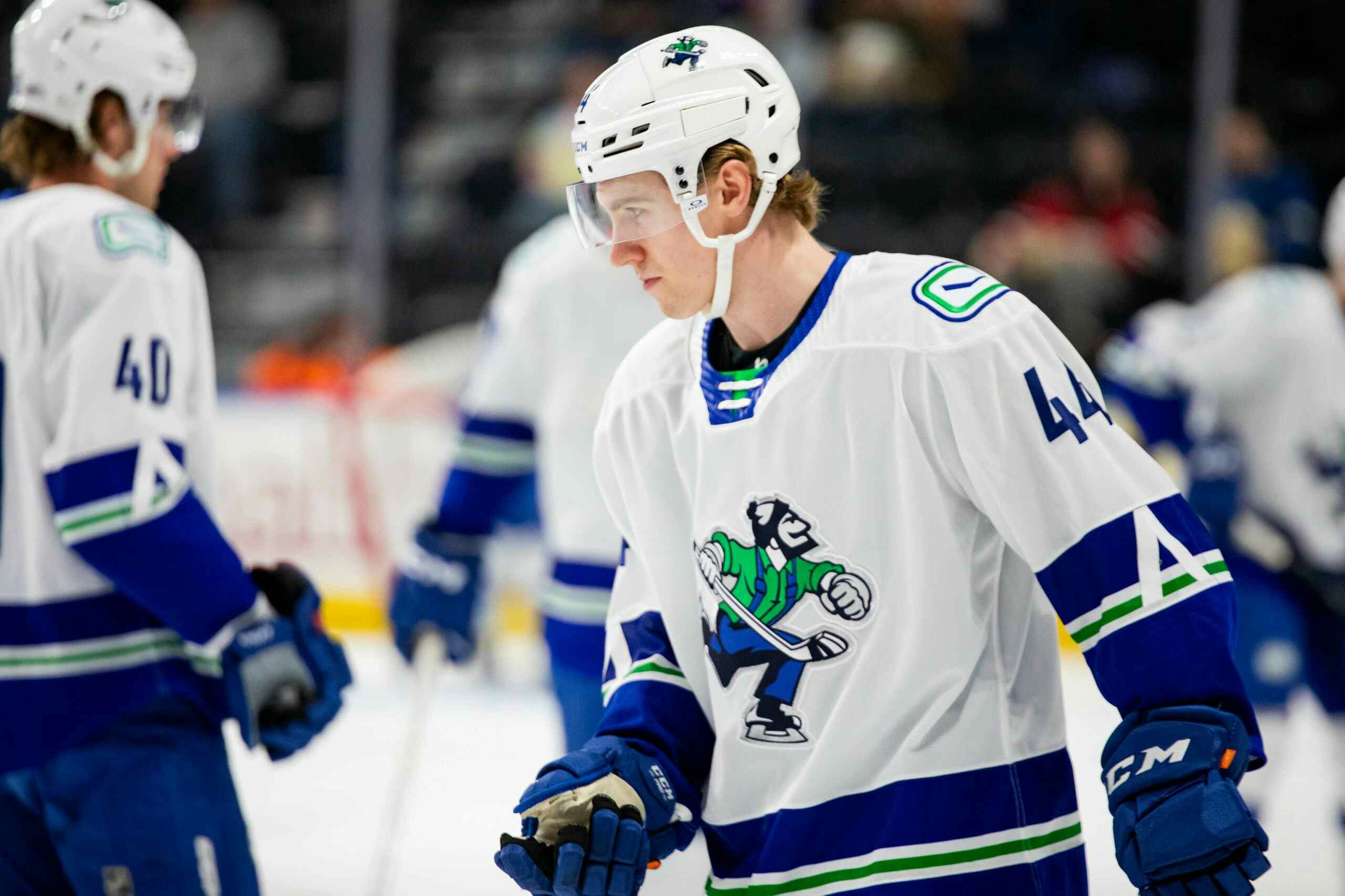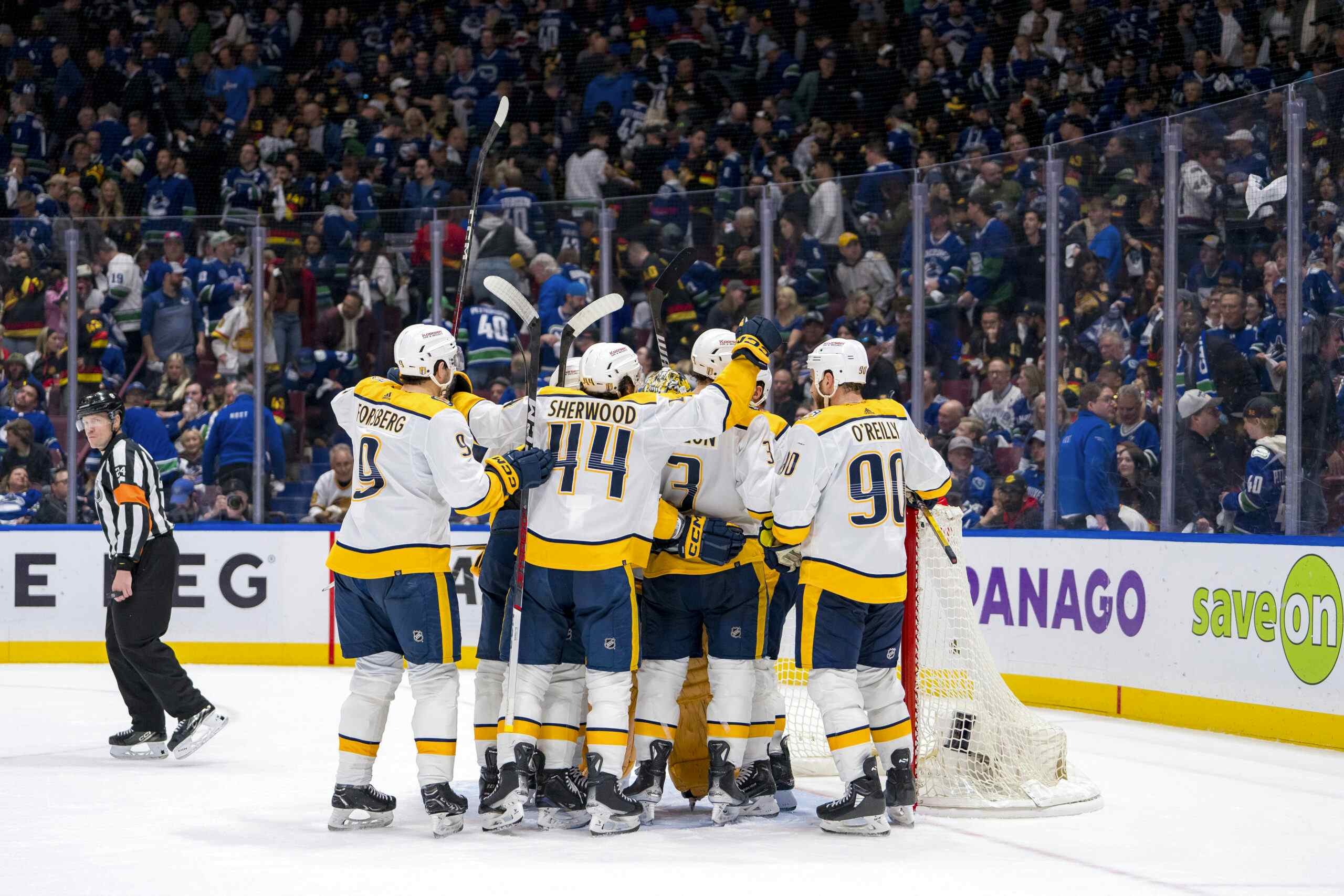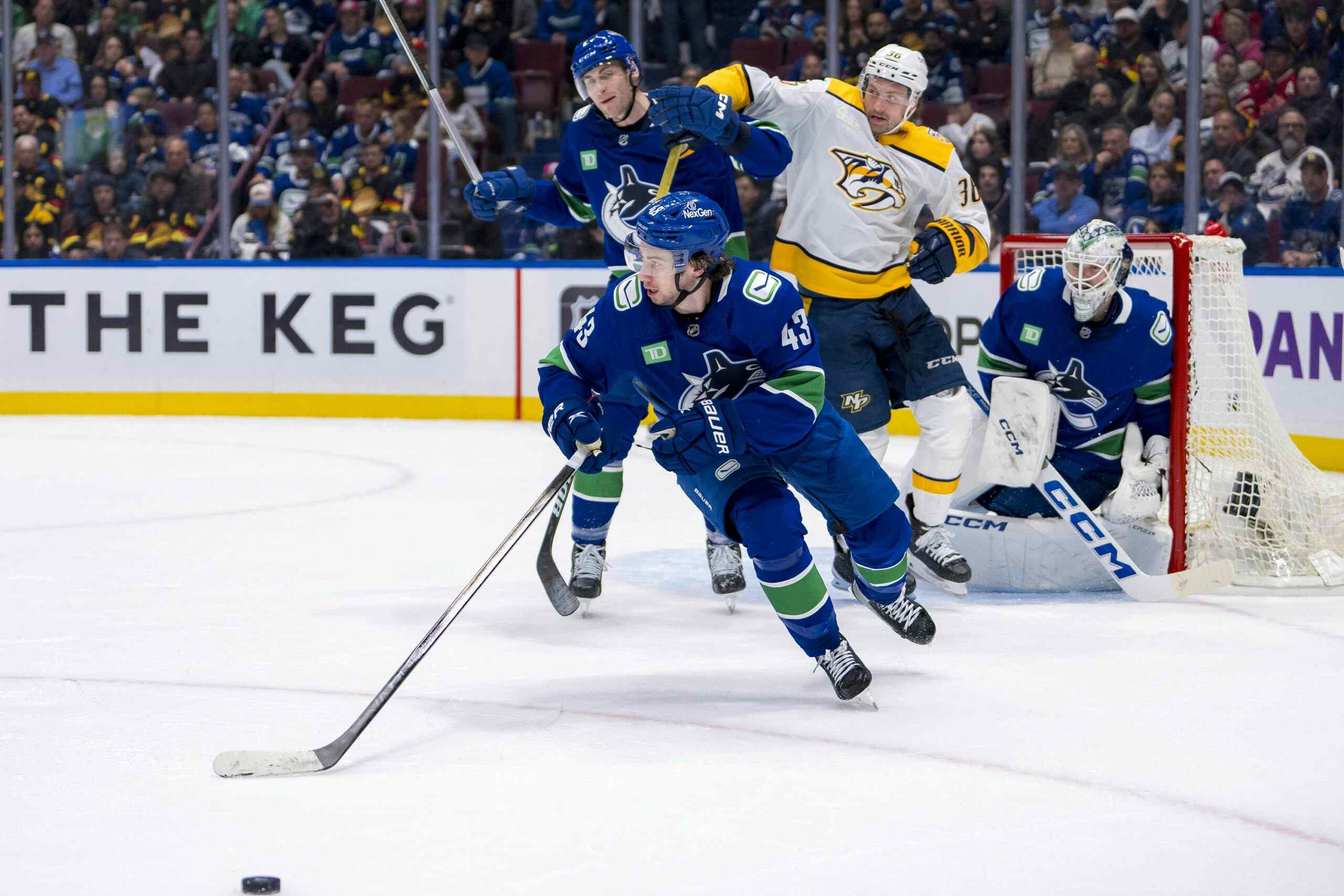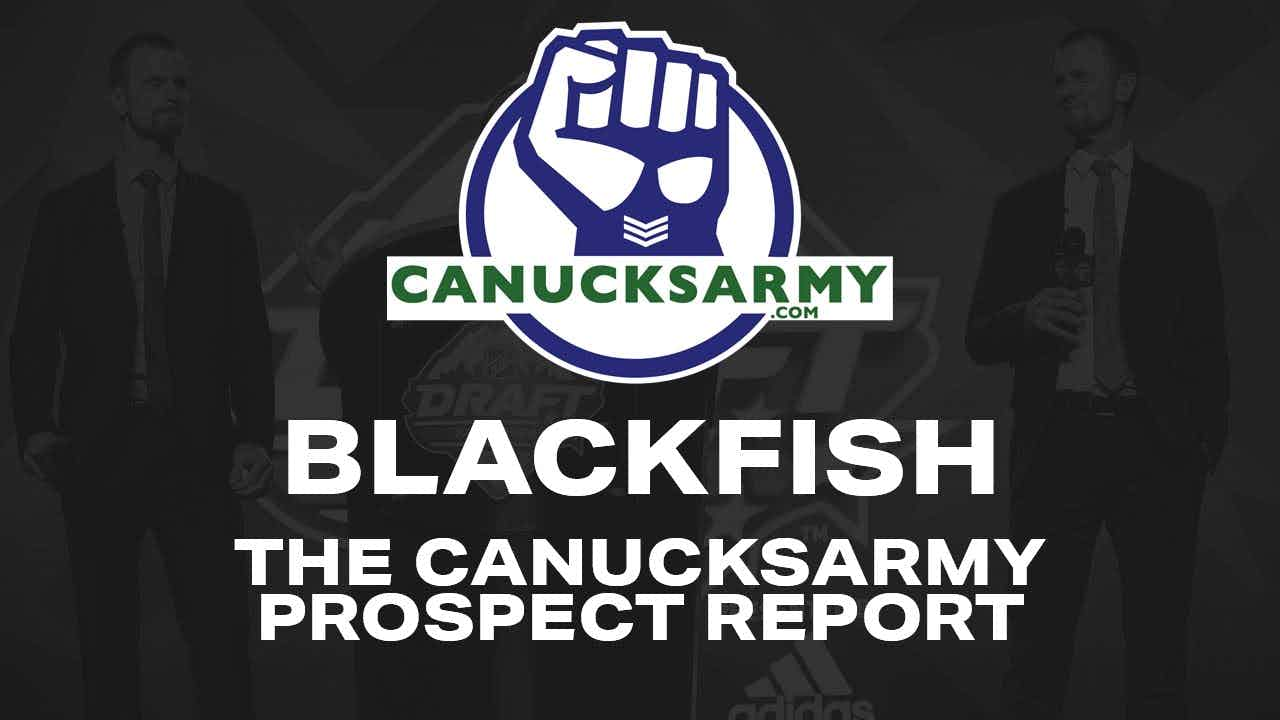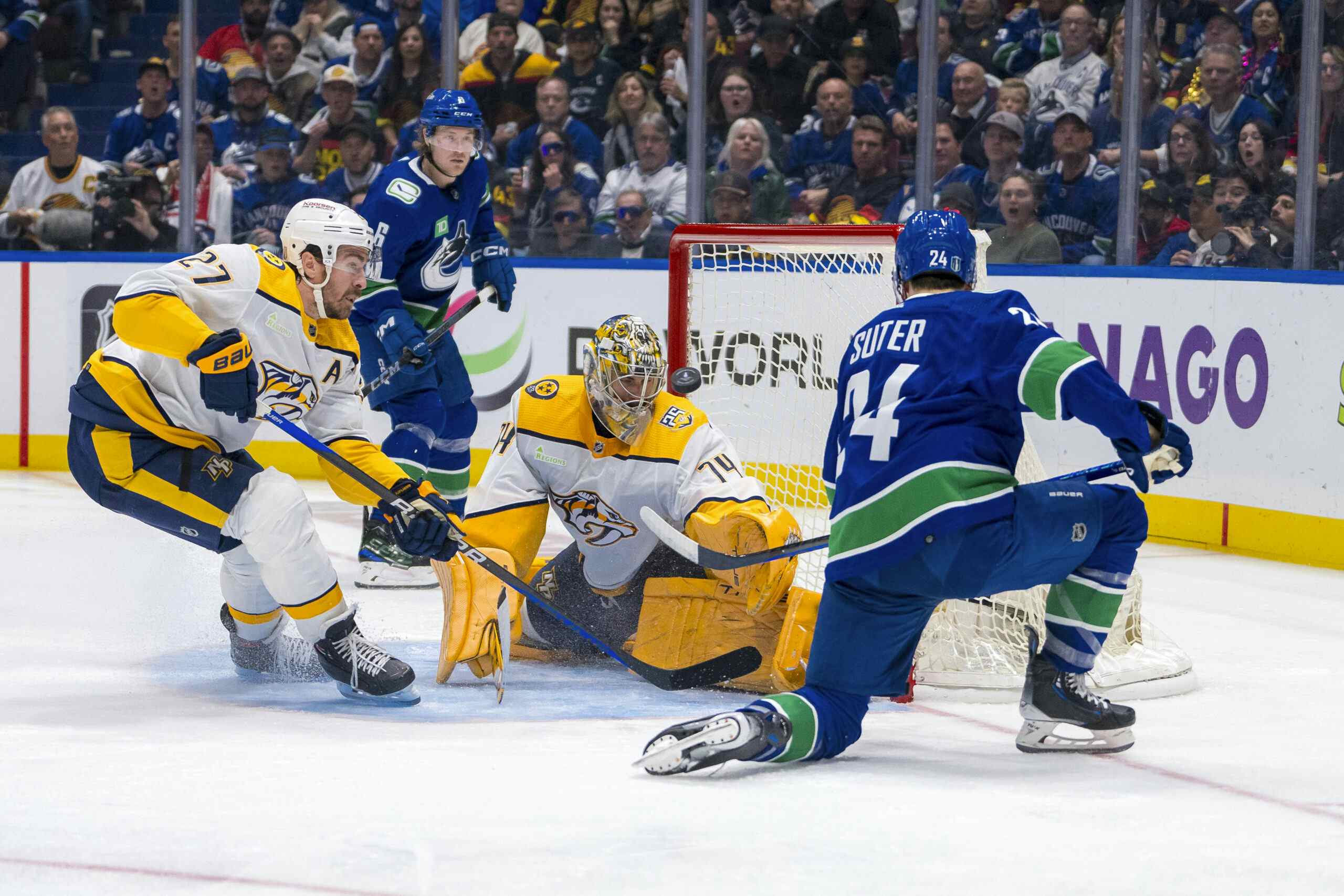Jett Woo suffered a setback, but he’s still on the right track
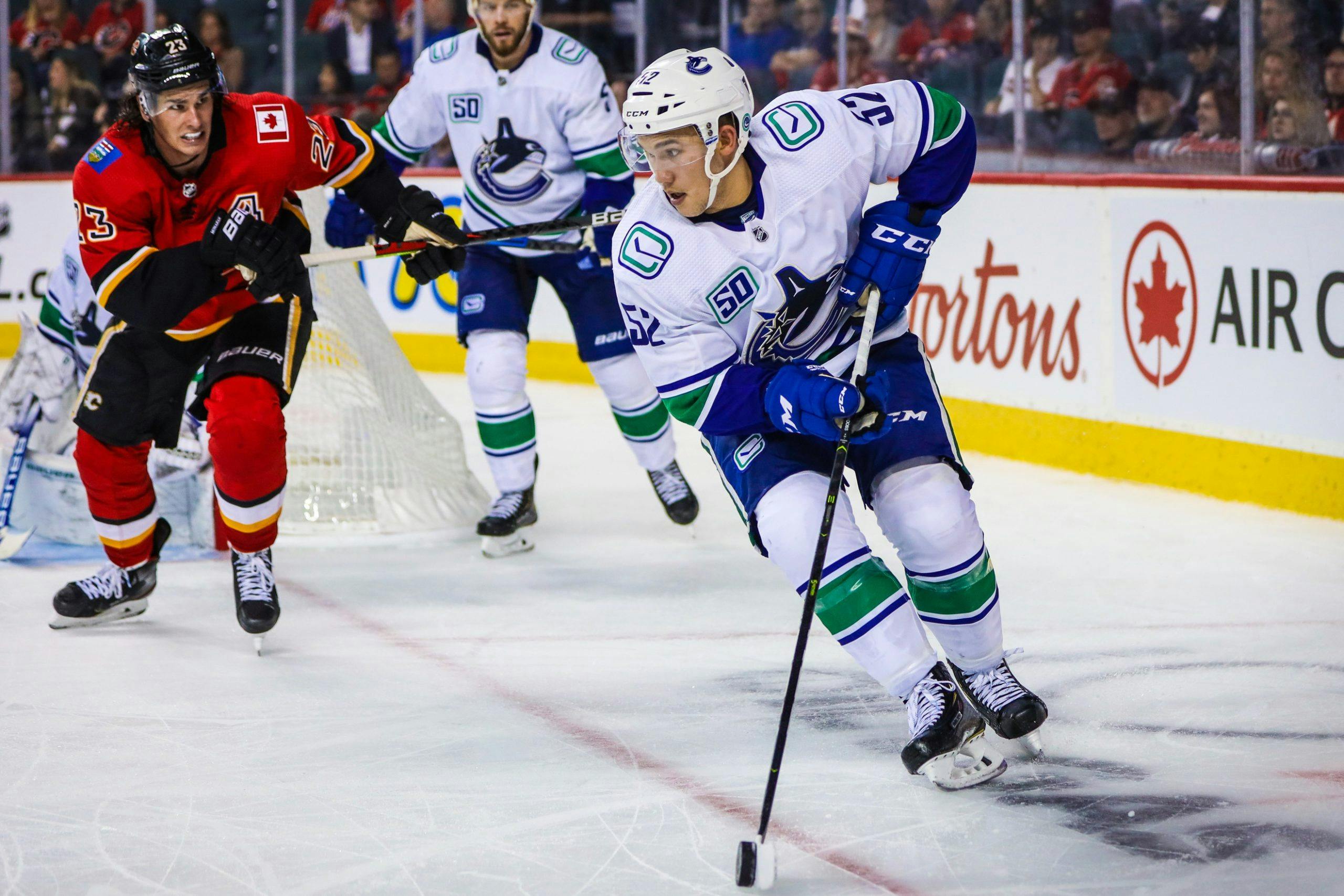
With draft picks and signings new and old jockeying for position in the Vancouver depth chart, it’s a convenient time to update our official CanucksArmy prospect rankings.
When we last did so in September of 2019, Jett Woo ranked sixth overall; a year later he’s dropped two spots, but without any newly-acquired players usurping his spot. Instead, Woo has been surpassed by other prospects already in the system — or, perhaps more accurately — his underperformance in 2019/20 has allowed others to surpass him.
This very same author, casting their gaze ahead to the upcoming season, wrote in September 2019 that:
“There’s upside to Woo still being 19 years old, as he’ll get another chance to make Team Canada in the 2019/20 season — with most pundits having already pencilled him onto the roster.His status as a teenager is also what prevents the Canucks from assigning him to the AHL’s Utica Comets, so it’s either the NHL or back to juniors for Woo in 2019/20. That may not seem ideal for a player who is clearly ready to take the next step, but all it means is that he’ll have to take that step with the WHL’s Calgary Hitmen.The Hitmen’s acquisition of Woo means that they’re shaping up to be a contender, which has to be considered a positive from the Canucks’ perspective. It means that Woo’s 2019/20 season will either end with a lengthy playoff run or an early audition with the Comets — either of which should be good for his ongoing development.”
Obviously, none of that came to pass. Woo’s transition to his new team in Calgary was so rough that he was out of WJC consideration by the time December rolled around. Both Woo and the Hitmen — hovering on the edge of a playoff spot when COVID shut down the WHL season — struggled to maintain any consistency throughout the year. The AHL’s own shutdown prevented any chance of a playoff run with the Comets, but it now looks doubtful that Woo would have gotten any games in, anyway. That’s a lot of disappointment for a prospect to endure in one season, but was it really as bad as it seemed?
Previously, Woo’s breakout 2018/19 campaign had rightfully won him a lot of attention in various hockey circles. 66 points in 62 games, including a staggering 54 assists, consideration for Team Canada, and a Second Team All-Star nod all make for one hell of a Draft+1. As our own preseason profile pointed out, the season skyrocketed Woo’s analytical odds of breaking into the NHL sooner rather than later.
And then came that trade to the Hitmen.
Woo’s production dipped a full 20 points to 46 in 64 games, and he only managed seven goals. But consider that, as Thomas Anderson of The Canuck Way tallied up, 22 of Woo’s 66 points in 2018/19 were secondary powerplay assists; a number that almost had to be based partially on luck, and was primed to come down a bit. Combine that with Woo’s decreased powerplay responsibilities in Calgary, and suddenly the drop in assists doesn’t seem so sharp.
Woo went back to his fourth full WHL season with a stated goal of improving his defensive game, and several pundits agree he’s done exactly that despite his offensive stumbles. It’s also important to note that Woo himself doesn’t consider the 2019/20 season to be a failure in the slightest. He told Ben Kuzma of The Province that, “it was more of a team game in Calgary and trying to get everyone involved and ready for that playoff run. It was an eye-opener for me, just to be with a new team and see how everything works in going to a first-class organization… Going into potentially my last year in the WHL, because we’re not sure what’s going to happen with it (COVID-19), I wanted to round out my game this year and improve my strength. And that was playing hard and gritty. I thought I was reliable.”
‘Hard and gritty,’ besides being the perfect title for a mascot-themed erotic thriller, is definitely Woo’s reputational bread and butter. As Moose Jaw GM Alan Millar told The Athletic, “You don’t hear this term as much as we used to, but he’s a throwback. He’s just a hockey player. He comes to the rink, he does his thing, he plays hard, he competes, he’s got some nastiness in his game, and he wants to take on the best players on the other team. He wants to shut them down, he wants to make the game hard for them to play.”
He’s been Youtube-famous for his thunderous open-ice hits for a while now, but this year saw him focus on a more general physicality, which is of greater importance as he transitions to professional hockey. Being ‘tougher to play against’ might be a cliché, but it’s also an objectively good thing for a prospective NHL defenseman to be.
Speaking of objectively good things, Woo’s across-the-board-strong skating ability is the underpinning of his bodychecking, and, really, the rest of his game, too. He’s been touted as an extremely mobile blueliner since before he was drafted, and he’s continued to add to his bipedal repertoire since. Anderson reports that, “another [thing Woo improved on in 2019/20] was his speed and acceleration up and down the ice; he was able to push past players if there but also able to hold opponents down going through the neutral zone.”
Woo appeared to be heating up as the WHL season came to a close unexpectedly early. He had an 11-game point streak in February — imagine how bad his production drop would have looked without it — and finally looked fully acclimated with his new club. And so, no playoff run and no cameo with the Comets, though Utica is where he’ll most likely be in 2021, provided there actually is an AHL season.
Recent history tells us to expect coach Trent Cull to bring Woo along slowly, either pairing him with a veteran presence like Ashton Sautner or limiting his minutes. There, those less-noticeable refinements he’s made to his game should pay off through a smooth transition into pro, and back onto the track of an eventual full-time gig with the Vancouver Canucks.
Recent articles from Stephan Roget

